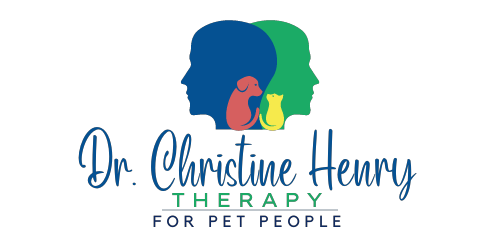
Therapy For Therapists Ready To Move From Burnout to Balance
Dr. Christine Henry, licensed psychologist, offers confidential support tailored to mental health professionals seeking nervous system regulation, emotional clarity, and a more sustainable way to live and work.
You hold space for everyone else. Who’s holding space for you?
We’re the ones everyone goes to for support. The ones who stay calm on the outside even when it’s chaos inside.
But when it comes to our own needs? We hesitate. We downplay. We postpone.
Somewhere along the way, we learned our worth came from being the responsible one the fixer, the caretaker, the one who holds it all together. And for many of us, the one constant source of comfort growing up was a pet by our side quietly offering what no one else could. And even now, as therapists, part of us still believes we should be able to “self-process” our way out of pain.
And let’s be honest when we do get a quiet moment, it’s not going to our own healing. It’s spent catching up on notes, figuring out dinner, or zoning out on our phones too drained to do anything else.
Therapy isn’t just for our clients. It’s for us too.
Because our needs matter. Our healing matters.
And it’s okay to let someone show up for us for once.

Therapy isn’t just another investment in your career, it’s an investment in your well-being.
There’s more for you than just getting through the day.
You’re holding it together, at work, at home, in front of your clients but the cost is starting to show. The fatigue that never fully lifts. The irritability that’s always just under the surface. The brain fog that makes it harder to hold onto what used to come so easily. You used to be sharp on top of everything. The one who remembered every detail, every task, every name. Now, even simple things slip through your fingers. And no one sees how hard you're working just to keep up. You’ve made it work, because you had to. But survival mode isn’t meant to last this long.
Here’s what support can make possible:
Build a practice and a life that works with your nervous system, not against it.
Feel more present without running on empty.
Untangle the burnout that’s been quietly building for years.
Have a space to name the grief and emotional weight you’ve been quietly carrying for your clients, your family, and the world.
Reconnect with what actually brings you joy.
My Style
I offer a space where you don’t have to fully organize your thoughts. You can bring the tangents, the half-formed questions, the things that don’t quite make sense yet. I’ll meet you there, with curiosity and clarity. Therapy with me feels like a thoughtful conversation open-ended and guided by what’s showing up for you that day. And if your cat walks across the screen mid-session? That’s welcome too. Curious about who I am beyond the therapy chair? You can meet me here.
My Theoretical Approach
ACT (Acceptance and Commitment Therapy)
Interpersonal Process/Relational Cultural Theory
Narrative Therapy
Polyvagal Theory
Attachment Theory
Trauma Informed
Neurodivergent Affirming
We’re trained in all the models, but I believe the most powerful part of therapy is feeling safe and understood in the counseling relationship.
Let’s Connect
Let’s connect with a free consultation to see if we would be a good fit to work together.
Online therapy available in Houston, Austin, Dallas, San Antonio, Texas, Indianapolis, Columbus, Ohio and several other cities, states. See therapy locations.
Frequently Asked Questions
-
I pull from a mix of approaches including acceptance and commitment therapy, attachment theory, polyvagal theory, narrative therapy, psychodynamic ideas, and interpersonal neurobiology. Sometimes I’ll also bring in a sprinkle of CBT if it feels helpful. Everything is filtered through a neurodivergent-affirming lens, which means I’m not here to “fix” you or make you blend in better. I’m here to help you understand yourself more deeply and build a life that actually works for your brain and nervous system.
-
I’ve been a therapist for over 20 years, and for half of that time I worked in APA-accredited college counseling centers. Part of my role there was supervising, mentoring, and supporting other therapists. That meant not only helping with clinical skills, but also walking alongside therapists as they navigated the very human side of this work burnout, imposter feelings, boundary struggles, and the weight of carrying client stories. I know how closely our work and our lives are intertwined, and how important it is to have a space to tend to both.
-
That’s such a common fear. Most of us have a part of our brain that stays in therapist mode analyzing, observing, even critiquing ourselves while we talk. You don’t have to switch that part off to be here. We can name it, notice it, and still make space for the rest of you. Therapy can be the one place where you don’t have to give the help, you get to receive it.
-
So many therapists feel this way. You sit down and that little voice kicks in “I should already know how to handle this.” But knowing the theories isn’t the same as living through it. You don’t lose your right to support just because you’ve read the research or sat in the other chair. Therapy as a therapist is about letting yourself be human for once, not the fixer, not the professional, just a person who deserves space and care.
-
Burnout doesn’t usually show up as one big crash. It creeps in slowly. Maybe you feel tired no matter how much you rest. Maybe your patience is thinner than it used to be, or you catch yourself zoning out after work because you’ve got nothing left to give. The details that once came so easily start slipping through the cracks. You’re still showing up for your clients, but inside it feels like you’re running on fumes.
If you’re even asking yourself this question, it’s worth paying attention. Your nervous system is probably already telling you something. Therapy can give you space to sort out whether this is stress, compassion fatigue, or full-on burnout and help you find a way forward
-
Being tired or stressed usually eases up with rest, time off, or a slower week. Burnout is different. It doesn’t lift after a weekend of sleep or even a long vacation, you come back and still feel drained.
With burnout, it’s not only your energy that’s low. It’s your patience, your creativity, your ability to feel present with clients or at home. You might feel detached, cynical, or like you’re just going through the motions.
-
I don’t bill insurance directly. Many therapists prefer private pay so they can keep their records fully private, avoid diagnosis labels, and move at a pace that isn’t dictated by insurance. I can provide a superbill if you want to see if your plan offers out-of-network reimbursement.
It’s okay if you’re not ready right now.
You’re allowed to take your time. Feel free to save this page, sit with it, and reach out when the timing feels right for you.
Keep Your Momentum
In the meantime, feel free to explore my self-help resources.
You’re already moving toward change just by being here—and even small steps, like reading or reflecting, can keep it going until you're ready for more.


